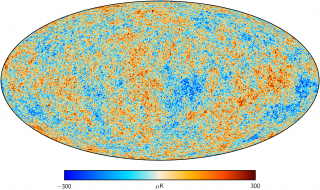Bibcode
Di Valentino, E.; Brinckmann, T.; Gerbino, M.; Poulin, V.; Bouchet, F. R.; Lesgourgues, J.; Melchiorri, A.; Chluba, J.; Clesse, S.; Delabrouille, J.; Dvorkin, C.; Forastieri, F.; Galli, S.; Hooper, D. C.; Lattanzi, M.; Martins, C. J. A. P.; Salvati, L.; Cabass, G.; Caputo, A.; Giusarma, E.; Hivon, E.; Natoli, P.; Pagano, L.; Paradiso, S.; Rubiño-Martin, J. A.; Achúcarro, A.; Ade, P.; Allison, R.; Arroja, F.; Ashdown, M.; Ballardini, M.; Banday, A. J.; Banerji, R.; Bartolo, N.; Bartlett, J. G.; Basak, S.; Baumann, D.; de Bernardis, P.; Bersanelli, M.; Bonaldi, A.; Bonato, M.; Borrill, J.; Boulanger, F.; Bucher, M.; Burigana, C.; Buzzelli, A.; Cai, Z.-Y.; Calvo, M.; Carvalho, C. S.; Castellano, G.; Challinor, A.; Charles, I.; Colantoni, I.; Coppolecchia, A.; Crook, M.; D'Alessandro, G.; De Petris, M.; De Zotti, G.; Diego, J. M.; Errard, J.; Feeney, S.; Fernandez-Cobos, R.; Ferraro, S.; Finelli, F.; de Gasperis, G.; Génova-Santos, R. T.; González-Nuevo, J.; Grandis, S.; Greenslade, J.; Hagstotz, S.; Hanany, S.; Handley, W.; Hazra, D. K.; Hernández-Monteagudo, C.; Hervias-Caimapo, C.; Hills, M.; Kiiveri, K.; Kisner, T.; Kitching, T.; Kunz, M.; Kurki-Suonio, H.; Lamagna, L.; Lasenby, A.; Lewis, A.; Liguori, M.; Lindholm, V.; Lopez-Caniego, M.; Luzzi, G.; Maffei, B.; Martin, S.; Martinez-Gonzalez, E.; Masi, S.; Matarrese, S.; McCarthy, D.; Melin, J.-B.; Mohr, J. J.; Molinari, D.; Monfardini, A.; Negrello, M.; Notari, A. et al.
Bibliographical reference
Journal of Cosmology and Astroparticle Physics, Issue 04, article id. 017 (2018).
Advertised on:
4
2018
Citations
154
Refereed citations
140
Description
We forecast the main cosmological parameter constraints achievable with
the CORE space mission which is dedicated to mapping the polarisation of
the Cosmic Microwave Background (CMB). CORE was recently submitted in
response to ESA's fifth call for medium-sized mission proposals (M5).
Here we report the results from our pre-submission study of the impact
of various instrumental options, in particular the telescope size and
sensitivity level, and review the great, transformative potential of the
mission as proposed. Specifically, we assess the impact on a broad range
of fundamental parameters of our Universe as a function of the expected
CMB characteristics, with other papers in the series focusing on
controlling astrophysical and instrumental residual systematics. In this
paper, we assume that only a few central CORE frequency channels are
usable for our purpose, all others being devoted to the cleaning of
astrophysical contaminants. On the theoretical side, we assume
ΛCDM as our general framework and quantify the improvement
provided by CORE over the current constraints from the Planck 2015
release. We also study the joint sensitivity of CORE and of future
Baryon Acoustic Oscillation and Large Scale Structure experiments like
DESI and Euclid. Specific constraints on the physics of inflation are
presented in another paper of the series. In addition to the six
parameters of the base ΛCDM, which describe the matter content of
a spatially flat universe with adiabatic and scalar primordial
fluctuations from inflation, we derive the precision achievable on
parameters like those describing curvature, neutrino physics, extra
light relics, primordial helium abundance, dark matter annihilation,
recombination physics, variation of fundamental constants, dark energy,
modified gravity, reionization and cosmic birefringence. In addition to
assessing the improvement on the precision of individual parameters, we
also forecast the post-CORE overall reduction of the allowed parameter
space with figures of merit for various models increasing by as much as
~ 107 as compared to Planck 2015, and 105 with
respect to Planck 2015 + future BAO measurements.
Related projects

Anisotropy of the Cosmic Microwave Background
The general goal of this project is to determine and characterize the spatial and spectral variations in the temperature and polarisation of the Cosmic Microwave Background in angular scales from several arcminutes to several degrees. The primordial matter density fluctuations which originated the structure in the matter distribution of the present
Rafael
Rebolo López